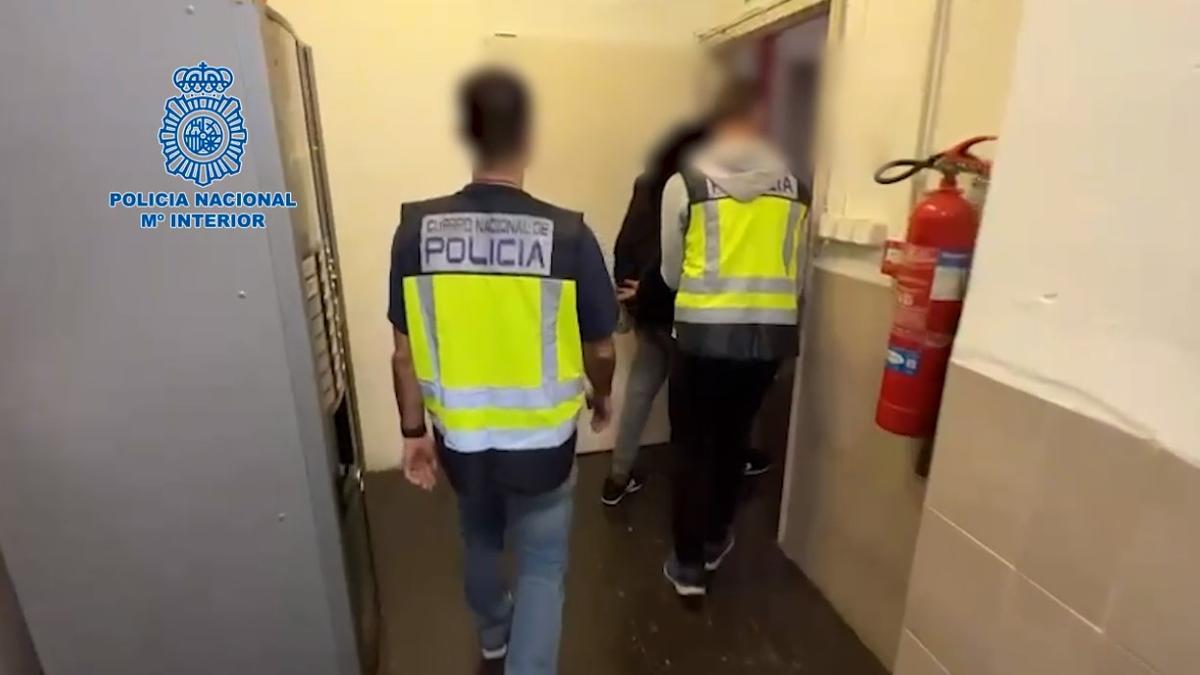The National Police have dismantled an international criminal organization that swindled more than four million euros from companies. According to the Police in a statement, 64 people have been arrested, three of them in Ibiza, 28 in Palma, four in Madrid, 17 in Valencia, five in Segovia, two in Aranda del Duero, one in San Sebastian, two in Zaragoza and two in Tenerife. They are accused of the alleged crimes of membership of a criminal organization, swindling, money laundering and computer accesso.
“The criminal organization committed the scams through a modus operandi known as BEC-Business Email Compromise. The objective was to reach members of management departments and CEOs of companies. The attacks were carried out from Nigeria country where the fraudulently obtained money was sent”, says the National Police communiqué.
The investigation was carried out by expert agents in the fight against cybercrime and has discovered in Spain an extensive network of bank mules for the reception of illicit transfers. “The head of the organization in our country, composed of three people, has already been placed at the disposal of the Audiencia Nacional. They were in direct contact with the head office in Nigeria, from where the money transfers were made attacks and where to fraudulently obtained money was sent“, points out the National Police. Thanks to the efforts made by the agents, the communiqué explains that they managed to block more than 600,000 euros.
Attacks on corporate e-mails
The type of scam is known as Business Email Compromise. “The cybercriminals, after gaining access by social engineering techniques to corporate emails, focused on obtaining confidential information from companies, their customer portfolio or financial transactions pending payment. Then, by means of highly personalized e-mail attacks, usurped the corporate identity of these companies before their clients and financial entities with which they had commercial agreements, they obtained payment of invoices and transactions of large sums of money to bank accounts that the organization had under its control,” explained the National Police.
The investigation was initiated following a complaint from a Spanish company, which was swindled out of more than $320,000 for an unreceived transfer corresponding to services rendered to a company in the Democratic Republic of the Congo. “Indeed, this transfer was indeed made by the Congolese company, but it was destined to the account of a third party unrelated to the commercial activity. The cybercriminals accessed the emails exchanged between the Spanish company and the Congolese company, and replaced the actual payment account with that of a bank mule, where the funds were finally received”, details the note.
The first results led to the discovery that the holder of the account receiving the fraudulent money was, in turn, responsible for other accounts receiving funds of the same nature from abroad. The agents also found that this person had reported that he was being extorted by the organization’s leadership, who were demanding large sums of money in order to be able to pay for his activities as a bank mule.
The bank mules
“Two of the investigated received the necessary information to initiate the bank frauds, requesting a second step the recruitment of bank mules. These, upon receiving the money from the fraud in their bank accounts, kept two percent of the transfers. The rest of the money was transferred to third party members of the organization to make it even more difficult to block the accounts,” said the National Police.
79 people have been investigated who made their bank accounts available to the cybercriminals where they had received more than four million euros. As a result, the agents arrested 64 people who are charged with crimes of belonging to a criminal organization, fraud, money laundering and illicit computer access. According to the police, four mobile terminals were also seized and nearly 200 bank accounts were investigated.
For the full article, please visit Diario de Ibiza website here.


 Transfer to police station of one of the detainees. National Police Force
Transfer to police station of one of the detainees. National Police Force